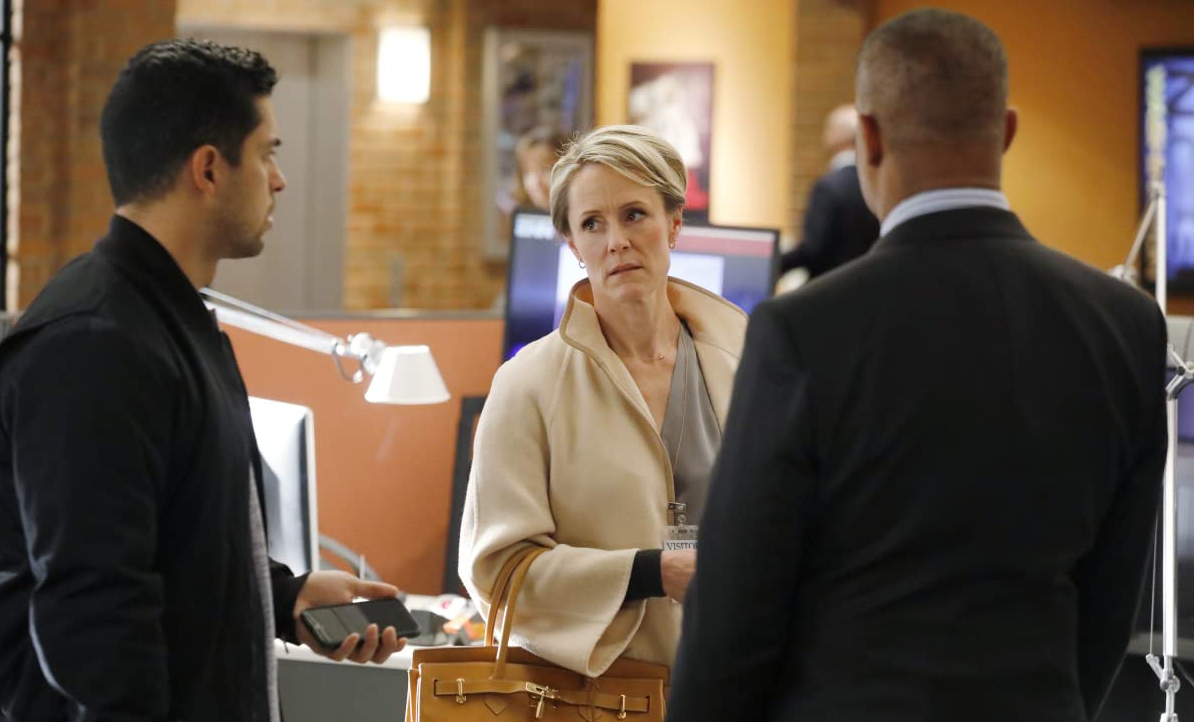
When Whistle Stop Was Put on the Stand
In the heart of Fried Green Tomatoes, the courtroom scene stands as a pivotal moment of reckoning. After years of quiet rebellion, radical love, and unconventional family-making, Idgie Threadgoode and Big George are hauled into court for the disappearance and suspected murder of Frank Bennett—Ruth’s abusive husband. But what unfolds in that wood-paneled room is not merely a trial about crime. It’s a moral referendum on justice, loyalty, and the kind of community that Whistle Stop has become.
The courtroom becomes more than a legal battleground—it is a test of everything Ruth, Idgie, Sipsey, and their extended family have built. The stakes are life and death, not just for Idgie and Big George, but for the soul of the town itself.
A Woman Who Defies the System
Idgie enters the courtroom not with fear, but with defiance simmering under her calm demeanor. She is a woman who has refused to bend to gender roles, religious pressure, or societal norms since the day Buddy died. Her refusal to be meek—whether serving Black patrons during segregation or defending Ruth from abuse—has long made her a suspect in the eyes of authority.
To the court, Idgie is everything the South tried to suppress: independent, irreverent, and resistant to control. Her refusal to fit into a mold of womanhood is not just a personal rebellion—it’s a social transgression. And now, with murder charges looming, the full weight of that transgression lands on her shoulders.
Big George—An Innocent Man in a Prejudiced World

Even more harrowing is the accusation against Big George. As a Black man in 1930s Alabama, his guilt is presumed by the simple fact of his skin. The courtroom scene reminds viewers that justice, especially in that era, was rarely colorblind. Big George does not plead, argue, or beg. He remains quiet, resolute, and dignified—a stark contrast to the hysteria of the townspeople and the callousness of law enforcement.
The silent bravery of Big George is one of the film’s most powerful undercurrents. He is not a man of many words, but his loyalty—to Sipsey, to Idgie, to Ruth—speaks louder than any testimony. In many ways, he is the moral compass of Whistle Stop, the anchor that holds its fragile integrity together.
The Reverend’s Lie: Sin or Salvation?
The courtroom reaches its emotional crescendo when Reverend Scroggins takes the stand. A man of the cloth, sworn to honesty and humility, the Reverend does something astonishing—he lies. Without blinking, he testifies that Idgie was attending his revival meeting at the time of Frank Bennett’s disappearance, offering her a false alibi.
This moment is as jarring as it is profound. In lying under oath, the Reverend commits a legal sin—but he does so to uphold a deeper moral code. His testimony isn’t about saving Idgie alone; it’s about preserving the truth that the court refuses to see: that Frank was abusive, that the community had a right to protect Ruth and her child, and that sometimes, justice lies outside the law.
It’s a moment of holy contradiction. A religious leader breaks the commandments to preserve the sanctity of love, friendship, and decency. His lie is not corruption—it is compassion weaponized.
Community as Shield and Sanctuary
The true power of the courtroom scene lies not in the evidence presented, but in the quiet force of community loyalty. Whistle Stop is not a perfect place—it holds prejudice, fear, and loss—but it is also a town capable of extraordinary solidarity.
This solidarity is most evident in the jury’s quick deliberation and acquittal. Their decision, while legally thin, speaks to something deeper: the collective agreement that Ruth and Idgie were worth protecting. The jury, like Reverend Scroggins, understands that law is not always synonymous with justice. And so, they shield the innocent not with facts, but with faith.
The entire town—black and white, young and old—comes together not just to defend two people, but to defend a way of life where love is thicker than law and loyalty outpaces judgment.
What Is Justice?
The courtroom sequence doesn’t provide easy answers. Frank Bennett’s murder is never officially solved. Sipsey, who killed Frank to protect Ruth’s son, remains in the shadows. Big George and Idgie go free, but not because the truth is exposed—instead, because the community decides to look the other way.
This moral ambiguity is what makes the scene so unforgettable. Justice, in this film, is not a verdict. It is a choice. It is the choice to prioritize compassion over punishment, protection over protocol. And sometimes, it is the choice to bury the truth in order to preserve what really matters: the people who had the courage to do what was right when no one else would.
The Lasting Consequences
After the trial, life at the Whistle Stop Café returns to normal—but with new gravity. Idgie and Big George remain free, but the memory of the courtroom lingers. It is a reminder of how precarious their freedom is, how easily it could have been lost.
Idgie, though never one to express vulnerability, knows just how close they came. And Big George, whose silence protected them all, becomes a symbol of endurance—of how Black labor, loyalty, and love kept the community running even when the world refused to see it.
The trial leaves an indelible mark, not just on the characters, but on the viewer. It asks us to reconsider what justice looks like, who gets to define it, and what we are willing to risk for the people we love.
